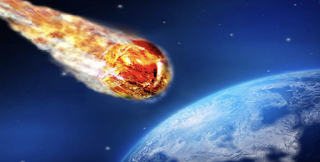-------------------------------------------------------------------------------------------------------------
It could happen at any time. Maybe an asteroid will hurtle toward Earth or a storm will cover the world in ice. A bite from a particularly angry monkey could start a viral zombie plague. The Internet could even shut off. Things could go to hell because of monsters or uncomfortably sentient robots, nuclear war or a terrorist attack. The question you should ask yourself is: What will you eat and drink when the world ends?
The people answering this question aren't scientists, the military, or NASA (though maybe there's a secret apocalypse science division in the government). They're known as "preppers" and are usually everyday folks with normal jobs — teachers or bankers or candlestick makers. The only difference between you and them is that they want to be ready when, in prepper jargon, SHTF because it's TEOTWAWKI ("the end of the world as we know it"). While FEMA's guide advocates for having a disaster kit consisting of a 72-hour supply of food, water, and clothing packed and ready to go, that's just a baby step for preppers. Come back when you've stored up enough to last you a week, a month, or a year.
"Hurricane Katrina proved to a lot of people that everything you have can be wiped out very quickly," says Pat Henry, founding editor of the Prepper Journal. He explains that everyone has to focus on four categories of survival — food, water, security, and shelter. Since 2008, Henry has been slowly stockpiling backup supplies. He's used rain barrels, water filtration, and bottled water to amass "hundreds of gallons" of H2O. "It sounds hokey, but I had a gut feeling that I needed to take steps to protect my family," he says. While one Daily Mail UK article estimates "there are three million preppers in the U.S. alone," no one knows who estimated that number, and it's unlikely that there are actually solid statistics on the subject — thanks to an inherent secrecy within the prepper community.
But despite prepping's mysterious exterior, everyone seems to agree on the basic principles of planning, buying, and storing food, water, and cooking utensils one needs to survive a disaster. According to the experts, there are three rules that will help you prepare for the end of the world.
Until next time,
e a lake

No comments:
Post a Comment